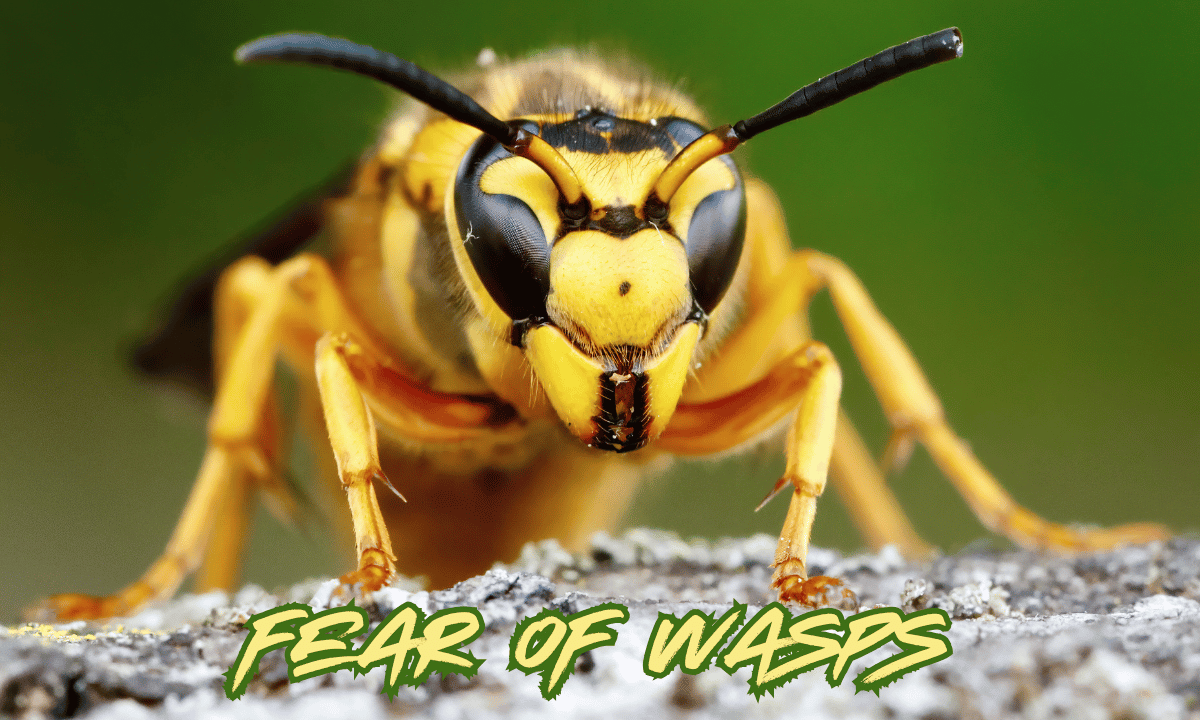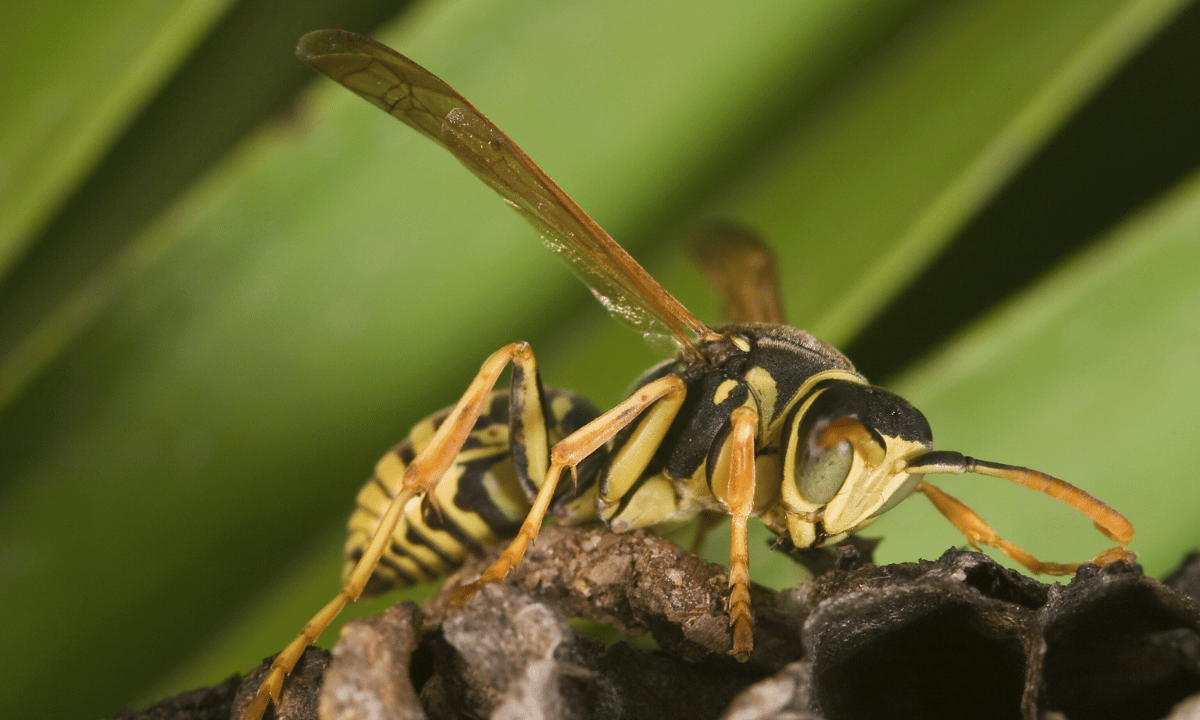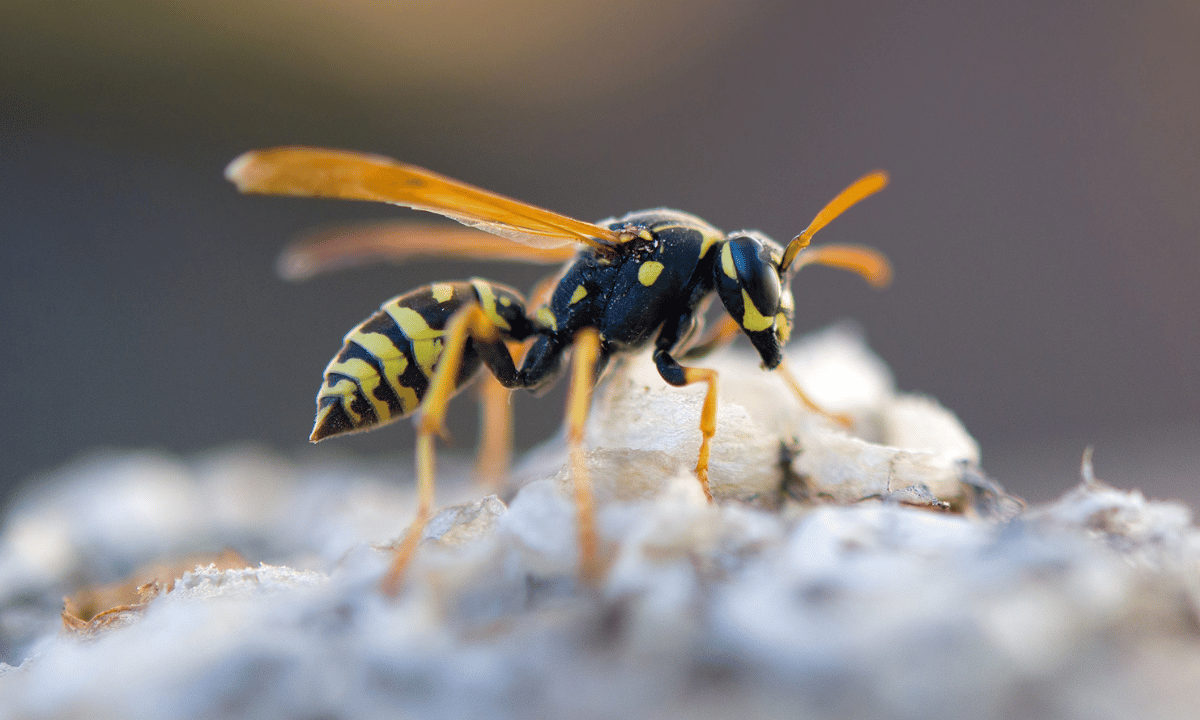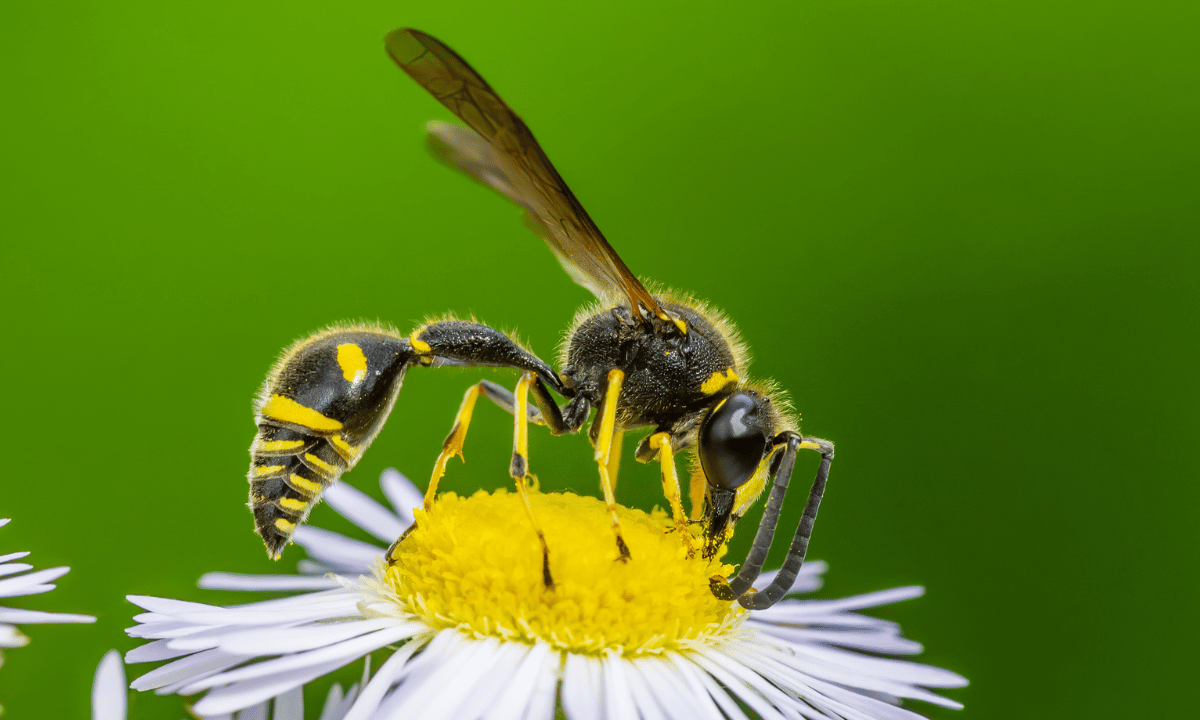- What is the phobia of wasps called?
The intense and irrational fear of wasps is called spheksophobia. This is often related to apiphobia (the fear of bees), and many people experience a combined fear of bees and wasps phobia.
- How do I know if my fear of wasps is a phobia?
A healthy caution is normal, but if your fear causes intense anxiety, leads to panic attacks, and makes you avoid situations where wasps might be present, it is likely a phobia. If the fear of wasps is phobia-level, it significantly impacts your daily life and well-being.
- Why are people scared of bees and wasps?
This fear often stems from a painful sting in the past, watching someone else get stung, or learned behaviour from family members. The unpredictable nature of wasps and their ability to sting multiple times contributes significantly to this wasp fear.
- Can wasps sense fear?
There is no scientific proof that wasps can smell or sense the emotion of fear. However, they are very sensitive to sudden movements and the increase in carbon dioxide we exhale when we panic. These signals can make them feel threatened, increasing the likelihood of a defensive sting. So, while they don’t do wasps sense fear, they react to the way we behave when we are afraid.
- How can I get over my fear of wasps?
How to get over a fear of wasps involves a combination of strategies. Learning more about wasps to demystify them is a good start. Practising relaxation techniques like deep breathing can help manage anxiety. For a lasting solution, professional therapies like Hypnotherapy, CBT, and Exposure Therapy are highly effective.
- What is the best way to get over a fear of bees?
Similar to a wasp phobia, learning how to get over a fear of bees involves understanding their behaviour (they are generally docile) and seeking therapy to retrain your brain’s fear response. Hypnotherapy is excellent for addressing the subconscious roots of a bee phobia.
- Are wasps scared of humans?
Wasps are not typically scared of humans, but they will generally avoid us unless they feel provoked or their nest is threatened. They are more interested in finding food and are unlikely to be aggressive if left alone.
Fear of Wasps | Understanding and Overcoming Spheksophobia
Interlude Hypnotherapy

Published: September, 2025
The sun is warm, the scent of cut grass is in the air, and you’re enjoying a lovely day outdoors. Suddenly, a familiar buzzing sound slices through the peace. For many, it’s a minor annoyance. But for you, that sound triggers a wave of panic. Your heart pounds, your palms sweat, and your only thought is to escape. If this sounds familiar, you might be experiencing more than just a simple dislike; you could have a fear of wasps, a powerful phobia known as spheksophobia.
This intense wasp fear is surprisingly common. While it’s sensible to be cautious around stinging insects, a phobia takes this to an extreme level, turning pleasant summer days into a source of anxiety. It can mean avoiding picnics, gardens, and even open windows, significantly impacting your quality of life. The good news is that you don’t have to live this way. Understanding the roots of your fear is the first step towards reclaiming your freedom. With the right support and techniques, like hypnotherapy, you can learn to manage this anxiety and enjoy the outdoors once more.
What is Spheksophobia? The Intense Fear of Wasps Explained
So, what is the fear of wasps called? The clinical term is spheksophobia. It’s a specific phobia characterised by an overwhelming and irrational dread of wasps. This isn’t just about not wanting to be stung; it’s a deep-seated fear that can trigger severe physical and emotional reactions. Someone with a phobia for wasps might experience panic attacks at the mere sight or sound of one.
This condition is often linked with a broader fear of stinging insects, leading to a co-existing fear of bees and wasps. While many people use the terms interchangeably, the anxiety is often more pronounced with wasps, which are perceived as more aggressive. Unlike bees, which typically die after stinging, wasps can sting multiple times, a fact that fuels the wasp phobia for many.
The fear can be so consuming that it dictates daily activities. You might find yourself constantly scanning for threats, avoiding eating outside, or feeling trapped indoors during warmer months. This avoidance, while offering temporary relief, only strengthens the phobia over time, making the world feel smaller and more threatening.

The Common Symptoms of Wasp Phobia
Recognising the symptoms is a crucial step in addressing your fear. Spheksophobia manifests in several ways, and the intensity can vary from person to person.
Physical Symptoms:
When you encounter a wasp (or even just think about one), your body’s fight-or-flight response can kick in, leading to:
- A racing heart or palpitations
- Shortness of breath or a feeling of choking
- Trembling or shaking
- Sweating and hot or cold flushes
- Nausea or an upset stomach
- Dizziness and light-headedness
- A tightness in your chest
Emotional and Cognitive Symptoms:
The internal experience of a phobia wasps can be just as distressing:
- An overwhelming sense of anxiety or panic
- Feeling a loss of control or a sense of impending doom
- An intense need to flee the situation
- Difficulty thinking clearly or concentrating on anything other than the wasp
- Feeling detached from yourself or your surroundings
- Recognising that your fear is excessive but feeling powerless to stop it
Behavioural Symptoms:
These emotional and physical reactions often lead to changes in your behaviour:
- Avoidance: Actively staying away from places where wasps might be, such as parks, gardens, or outdoor cafes.
- Escape: Immediately leaving an area if a wasp appears.
- Hypervigilance: Constantly being on high alert for wasps when outdoors.
- Freezing: Becoming paralysed by fear and unable to move.
If these symptoms resonate with you, it’s a sign that your fear of wasps is phobia-level and it may be time to seek support.
What Causes the Fear of Wasps and Bees?
Phobias rarely appear out of nowhere. The roots of a bee and wasp phobia are often complex and can be traced back to several potential causes. Understanding these origins can help demystify your fear and is a key part of the healing process.
Traumatic Past Experiences
The most direct cause is often a negative personal experience. Being stung as a child, especially if it was particularly painful or resulted in an allergic reaction, can leave a lasting emotional scar. Witnessing someone else have a severe reaction, like a family member being swarmed or going into anaphylactic shock, can be just as traumatising and create a powerful, learned fear.
Learned Behaviours
We often model our emotional responses on those of the people around us, especially during childhood. If you grew up with a parent or guardian who would panic, scream, or frantically swat at wasps, you may have learned to associate these insects with extreme danger. This isn’t a conscious choice; it’s an emotional blueprint that gets ingrained in our subconscious mind.
Misinformation and Media Portrayal
Sensationalised news stories about “killer hornets” or exaggerated depictions of wasps in films and television can contribute to a widespread perception of them as aggressive villains. While a tiny fraction of the population has a life-threatening allergy, the media can make the danger seem far more universal and immediate than it is. This can feed the belief that every encounter is a high-stakes situation.
Evolutionary Predisposition
Some theories suggest that humans are evolutionarily primed to fear certain creatures. Our ancestors needed to be wary of spiders, snakes, and stinging insects to survive. While this instinct is less critical for survival today, that primal part of our brain can still trigger a powerful fear response when faced with something it perceives as a threat. The question of “can wasps sense fear?” or “do wasps smell fear?” often comes up. While there’s no scientific evidence that wasps can “smell” fear in humans, they are highly sensitive to frantic movements and carbon dioxide from our breath when we panic, which can make them feel threatened and act defensively. So, while they don’t sense your fear, they react to your panicked behaviour.

Are Wasps Really That Dangerous?
A healthy respect for wasps is wise. Yes, they can sting, and it hurts. For the small percentage of people with an allergy, a sting can be dangerous. However, for most of us, a sting is a painful but temporary inconvenience.
Wasps are not malicious creatures actively seeking to harm humans. Their primary concerns are finding food, building their nest, and protecting their colony. A wasp buzzing around your picnic is likely attracted to the sweet food or drink, not to you. Most stings occur when a wasp feels threatened—for example, if it gets trapped in clothing, is swatted at, or if you get too close to its nest.
Understanding their behaviour is key. Wasps play a vital role in our ecosystem as pollinators and natural pest controllers, preying on many insects that damage crops. Learning to distinguish them from less aggressive insects like hoverflies or solitary bees can also reduce anxiety. Knowing what are wasps scared of can also be helpful; strong scents like peppermint, eucalyptus, and citronella are known deterrents.
How to Get Over a Fear of Wasps: Effective Therapeutic Approaches
Living with a fear of wasps and bees can be draining, but you do not have to manage it alone. Professional therapies offer proven pathways to lasting freedom from this phobia. Both Hypnotherapy and Cognitive Behavioural Therapy (CBT) are highly effective, evidence-based approaches, and can be used either alone or together for comprehensive support.
Hypnotherapy for Wasp Phobia
Hypnotherapy is particularly powerful for addressing phobias as it engages the subconscious mind—where the automatic fear response is stored. A phobia is not a rational, conscious decision; it is an ingrained pattern that emerges without warning. Through Clinical Hypnotherapy, you can re-train your mind and body to respond differently when confronted with wasps.
During a hypnotherapy session, you enter a deeply relaxed state, much like gentle daydreaming. In this space, your subconscious is more open to positive suggestions. The therapist helps you to:
- Reframe difficult memories: If your phobia is rooted in past trauma, hypnotherapy helps you view the memory from a calm, detached perspective, reducing its emotional impact.
- Create new, reassuring associations: Through guided imagery, you can mentally rehearse staying calm around wasps, gradually building new, more positive responses.
- Deep relaxation: Hypnotherapy provides you with practical tools for managing anxiety, not just about wasps but in other stressful situations too.
At Interlude Hypnotherapy, I combine solution-focused methods with elements of modern psychotherapy, helping you shift attention from problems to your desired outcome—such as feeling calm, confident, and in control, even around wasps.
Cognitive Behavioural Therapy (CBT) for Wasp Phobia
CBT is another leading approach for overcoming the fear of wasps and is widely recognised by health authorities in the UK, including NICE. CBT works by tackling the negative thought patterns and beliefs that fuel your phobia. Rather than focusing on the subconscious, CBT operates at the level of your conscious mind.
In CBT, you work collaboratively with a therapist to:
- Identify anxious thoughts: You look closely at your fearful beliefs (e.g., “If there’s a wasp nearby, I will be stung”) and recognise how such thoughts exaggerate risk.
- Challenge irrational fears: Your therapist helps you test the reality of these thoughts, often revealing that your fear, while deeply felt, is not grounded in fact.
- Develop practical coping skills: CBT provides step-by-step tools for changing your responses, such as slow breathing, positive self-talk, and grounding in the present moment.
- Gradual exposure: CBT often includes graded exposure to the feared situation, helping you gain confidence through small, manageable steps.
Research consistently shows that CBT can dramatically reduce avoidance behaviours and anxiety, empowering clients to face wasps and outdoor situations without overwhelming fear.
Complementary Support | Hypnotherapy and CBT Together
Both therapies have unique strengths. Hypnotherapy helps you access the subconscious roots of your fear, while CBT gives you practical techniques for taking control of your thoughts and actions. Many clients find that combining these approaches accelerates their progress and builds lasting resilience.
At Interlude Hypnotherapy, sessions are personalised to suit your needs, and therapy may integrate both Hypnotherapy and CBT—providing the broadest possible support for overcoming a wasp phobia. Whether you choose one or both, the key is that you do not have to endure this fear in silence. Effective help is available, and change is possible.
Exposure Therapy
This approach can be included as part of CBT or as a standalone method. Gradually and safely exposing yourself to wasps in a controlled environment—starting with photos, then videos, and eventually safe real-life situations—helps desensitise your fear response over time. A study published in the Journal of Anxiety Disorders highlights the success of exposure-based treatments for specific phobias.
Evidence for the Effectiveness of Hypnotherapy
While large-scale studies specifically on hypnotherapy for spheksophobia are limited, a growing body of evidence supports its use for phobias and anxiety in general. The National Institute for Health and Care Excellence (NICE) in the UK acknowledges the role of therapies like CBT for anxiety disorders, and many therapists integrate hypnotherapy with CBT for enhanced results.
A meta-analysis published in the International Journal of Clinical and Experimental Hypnosis found that hypnosis significantly enhances the effectiveness of cognitive-behavioural therapy for a range of conditions. For phobias, this combination can accelerate progress by allowing the subconscious to adopt new, positive behaviours more rapidly than with talking therapy alone. My 25 years of experience in holistic wellness and clinical hypnotherapy have shown me time and again the transformative power of this approach for clients struggling with deep-seated fears.

Take the First Step Towards a Fear-Free Life
Your fear of wasps does not have to control your life. You have the power to change your response and reclaim your peace of mind. With over 25 years of expertise in holistic wellness, I draw on my experience as a Clinical Hypnotherapist and Wellness Coach based in Sheffield and online to help people overcome phobias and anxiety. Using a compassionate, solution-focused approach, I blend Clinical Hypnotherapy and Cognitive Behavioural Therapy (CBT), offering a personalised combination of techniques tailored to your unique needs for lasting change.
Are you ready to enjoy summer without fear? I invite you to book a free 15-minute consultation with me. Together, we can discuss your specific challenges and explore how a tailored combination of Hypnotherapy, CBT, and other therapeutic methods can support you on the path towards a calmer, more confident life. Let’s work together to help you thrive.
Get in touch via WhatsApp or email by clicking the button below.
Read more articles about fear and phobia
➡️ Aerophobia (Fear of Flying) | Understanding and Overcoming
➡️ Musophobia | How to Beat Your Fear of Rats & Mice
➡️ Arachnophobia Disease | Causes, Symptoms, and Effective Treatments
➡️ Ailurophobia (Fear of Cats) | Causes, Symptoms, & Treatments
➡️ Entomophobia | Overcoming the Fear of Insects
➡️Scoleciphobia | Understanding and Overcoming the Fear of Worms
➡️Fear of Moths | Overcoming Mottephobia/Lepidopterophobia




